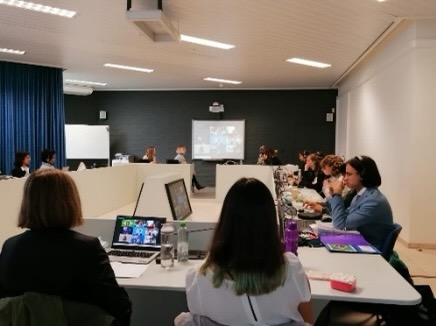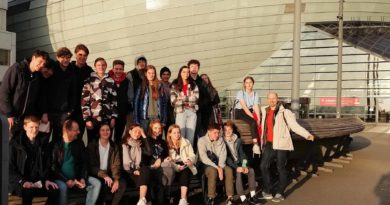The debates begin: MUNUCCLE 2021
01/20/2021 – With delegates of twenty two countries and two organisations attending, the CDH meeting was filled with students debating over Japan’s resolution. It was a very interesting day.
It started with an opening ceremony where we saw the president before the beginning of the formal debates. The presidents of the CDH allowed some time for the alliances to discuss their resolutions before the debate. I listened to what Romania and Brazil discussed. Brazil mentioned “We are not corrupt at all” and Romania suggested “We could embezzle some funds, as governments.” Not the best start. Soon after that, the presidents gathered all the countries and organisations together as the debates commenced. After Japan read out their resolution, which had many good points, including support for journalists and media, South Korea was the first to question them. They noticed that Japan recognised lower vaccination rates in poorer countries, but wanted to know what action Japan proposed to help solve this. Japan replied that technology should be used to identify problems in vaccine distribution. Syria and the People’s Republic of China (PRC) both agreed that there could be issues with that for “underdeveloped countries” and “countries of limited resources”.

Another point that Japan made was that countries should partner with corporations to help tracking, which, according to them, is essential to support society after covid without infringing human rights. South Africa spoke up, stating that no country that is too poor for vaccines would be able to support companies who aid with tracking. Tunisia suggested an international fund. Nicaragua supported South Africa’s statement. Sweden wanted to simply change the clause about this rather than replacing it, but a vote ended with the clause being stricken.
Amnesty International then spoke about the fact that “millions of lives” could have been saved if Chinese doctors and scientists weren’t silenced. They then gave multiple examples of this. The PRC responded that they were simply protecting their citizens, and asked if Amnesty Int. was “ideologically biased”. Of course, the answer was no.
In opposition to Amnesty Int. , Syria and Russia both agreed that a vaccine passport is too strict and restrictive at the moment.
Restrictions for journalists? After this short discussion, Brazil announced that they are “in a state of crisis at the moment”, and “Journalists must be restricted” to stop the spread of misinformation. For obvious reasons, I personally disagree with this. They defined misinformation as “any lies spread about the president”. Although Amnesty Int. said that they were using the term false news to “silence government critics”, Brazil had support from Syria and PRC. Due to this, the amendment was passed, and with that, the day’s debates came to an end.
Nathan Iha / EE Mol




